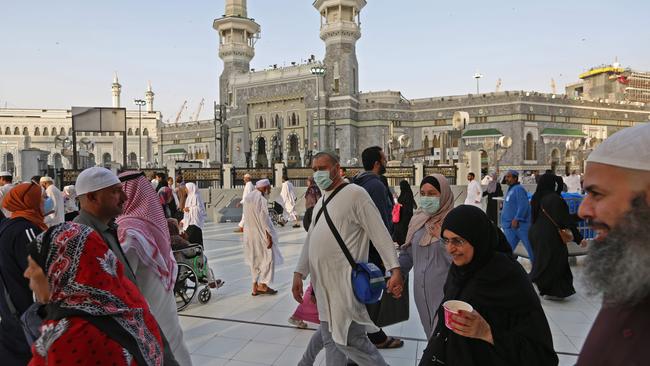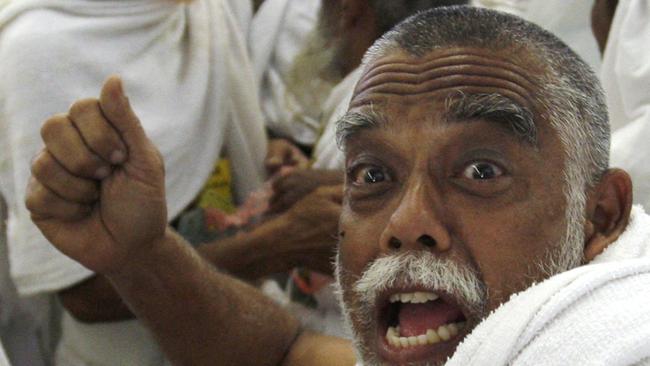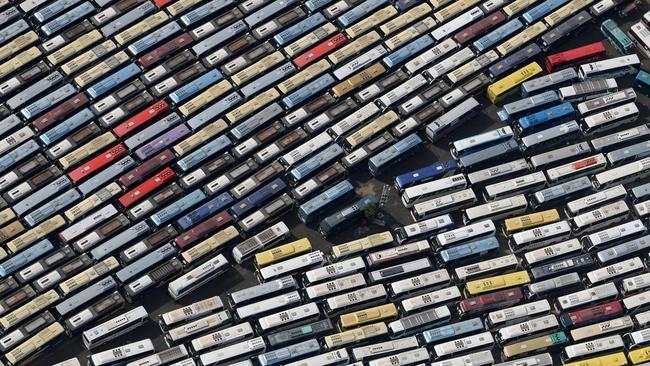Muslim Hajj pilgrimage threatened for first time in 1000 years
One of the greatest religious spectacles, the Hajj, is expected to be cancelled for the first time in a millennium.

It has survived pestilence, political tensions and war, but one of the world’s greatest religious spectacles is expected to be cancelled for the first time in a millennium this year.
The religious authorities and the Saudi royal family are balancing worldwide enthusiasm for the Hajj, the pilgrimage of millions of Muslims to the holy cities of Mecca and Medina, due to start in late July, against the risk of coronavirus.
Ramadan, the fasting month that launches the annual season of prayer, feasts and pilgrimages, began in Saudi Arabia and most other Muslim countries on Friday.
Some countries eased shutdown restrictions slightly to make easier the annual family gatherings that mark the breaking of the fast at dusk every day.

However, travel restrictions are still expected to be in place during Eid al-Fitr, the holiday that marks the end of Ramadan. A decision has yet to be made about what will happen to the other great holiday, Eid al-Adha, which coincides with the Hajj.
Many Muslims around the world are resigned to the cancellation of the five-day pilgrimage, at which more than two million would normally gather for a series of ceremonies in the two cities.
The coronavirus pandemic has already caused problems for Saudi Arabia, including striking down some members of the royal family.

King Salman, 84, and his all-powerful son, the crown prince Mohammed bin Salman, 34, are said to be isolated separately at palaces on an island off Jeddah and on the northwest Red Sea coast respectively.
The collapse in demand for oil, combined with a price war launched by the crown prince against Russia and the US, has caused the value of a barrel to shrink to a level not seen since 2001.
An International Monetary Fund report last week said that the falling prices could cost Gulf states $US230 billion ($360bn) this year alone.
For the authorities, running the Hajj has always been a big logistical problem, which has frequently led to disaster. In 2015 thousands of pilgrims were crushed in a stampede. The official death toll given by the Saudi authorities was 769 but independent observers estimated it at more than 2000.
However, it is also a big source of income: the boost to the economy in recent years is estimated to be more than $US8bn, on top of regular income from religious tourism.

The authorities have already closed off Mecca and Medina indefinitely to foreign Muslims making pilgrimages outside the Hajj season.
The ruling al-Saud family is facing its most serious reputational crisis since the founding of the modern kingdom in the 1930s, after the murder of the journalist Jamal Khashoggi and criticism of its role in the devastating war in neighbouring Yemen.
However, there is noticeably little criticism of its interruption of religious travel. While the country has 15,000 confirmed coronavirus cases and 127 deaths, those figures are dwarfed by the outbreak in its main regional rival, Iran, where 5500 deaths have been recorded following an initial cover-up.

Curtailing customs during Ramadan may prove a tougher challenge. The iftar, or post-dusk breaking of the fast, is as inviolable to most Muslim families as Christmas lunch in the West, and involves gatherings of extended families.
The authorities in countries from Egypt to the United Arab Emirates have shortened their curfews for it. Dubai’s restaurants have reopened.
Mosques, however, remain largely closed to group worship. “Our hearts are crying,” Ali Mulla, the muezzin, or prayer-caller, at the Grand Mosque in Mecca, said. “I feel pain deep inside.”
No Hajj has been cancelled completely since the 10th century, though wars and disease have previously seen restrictions on access. In one outbreak of cholera in 1865, 15,000 pilgrims are thought to have died.
The Times



To join the conversation, please log in. Don't have an account? Register
Join the conversation, you are commenting as Logout